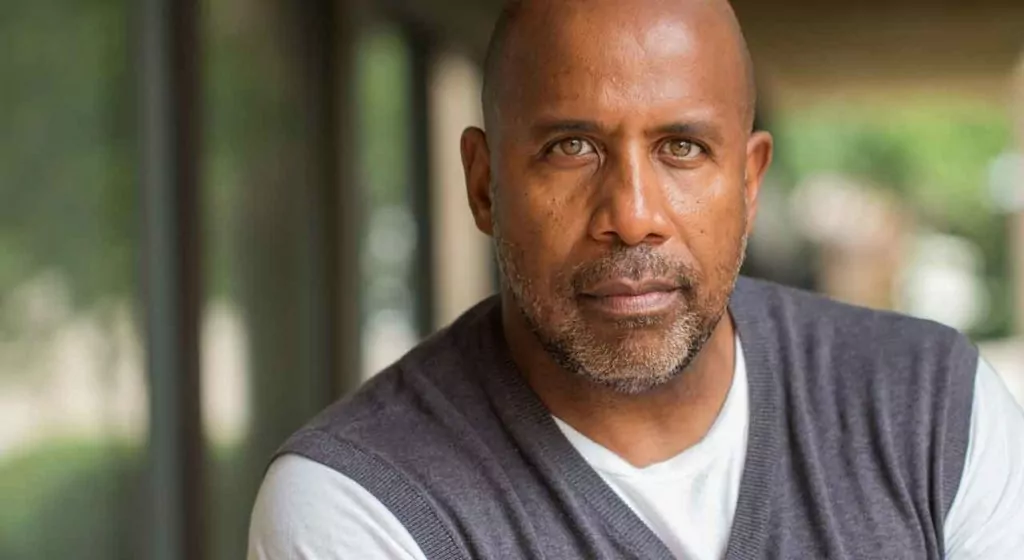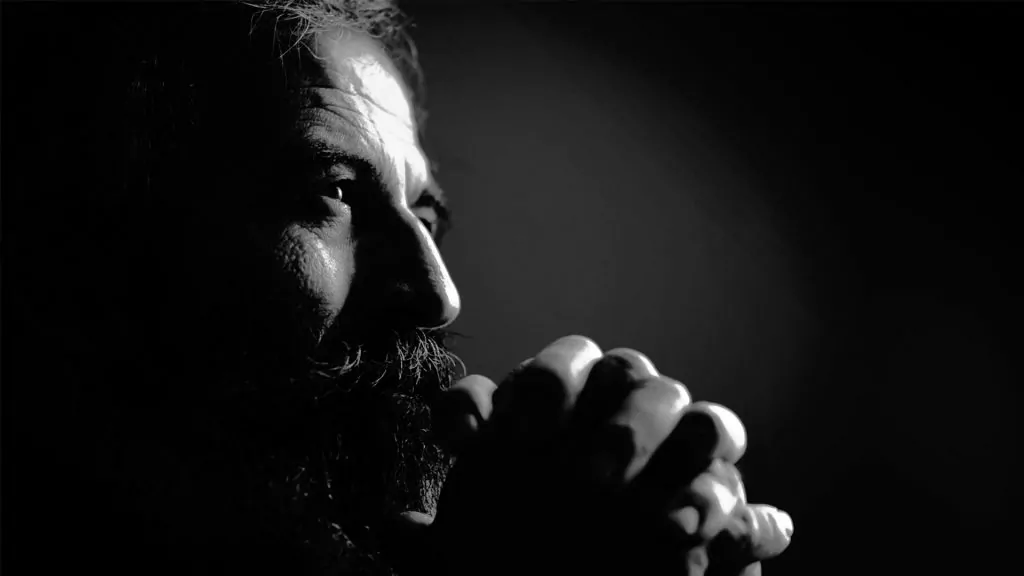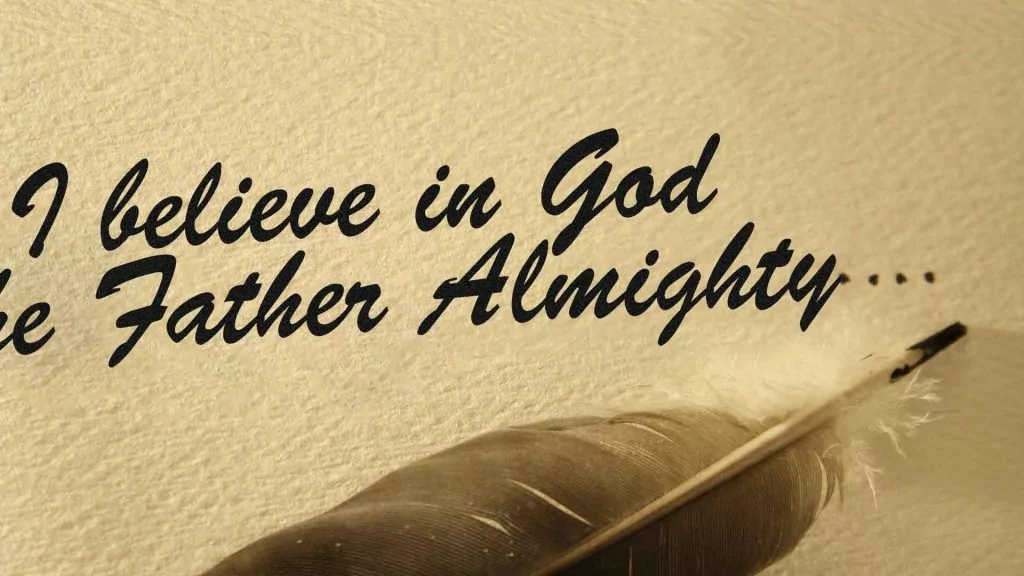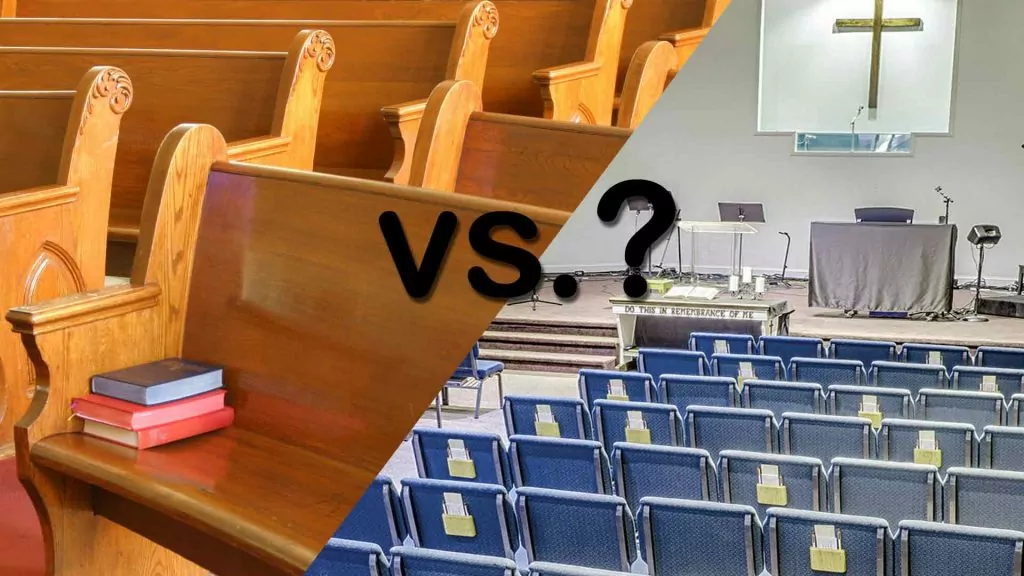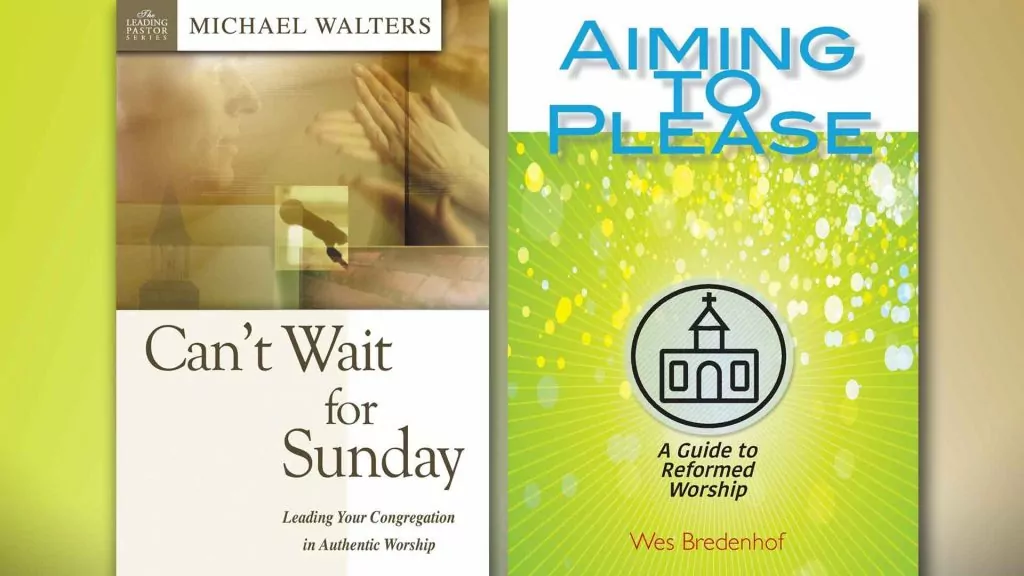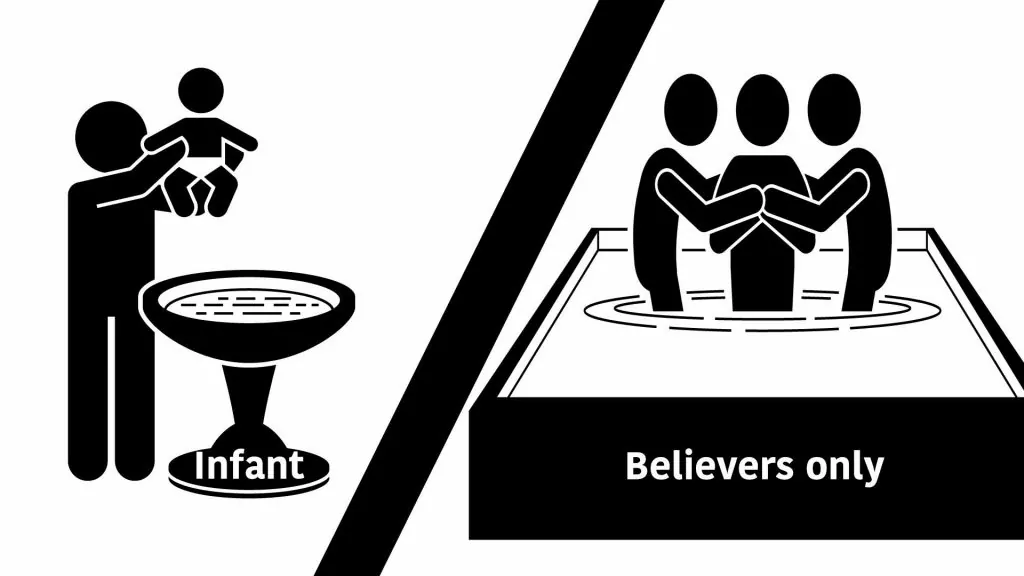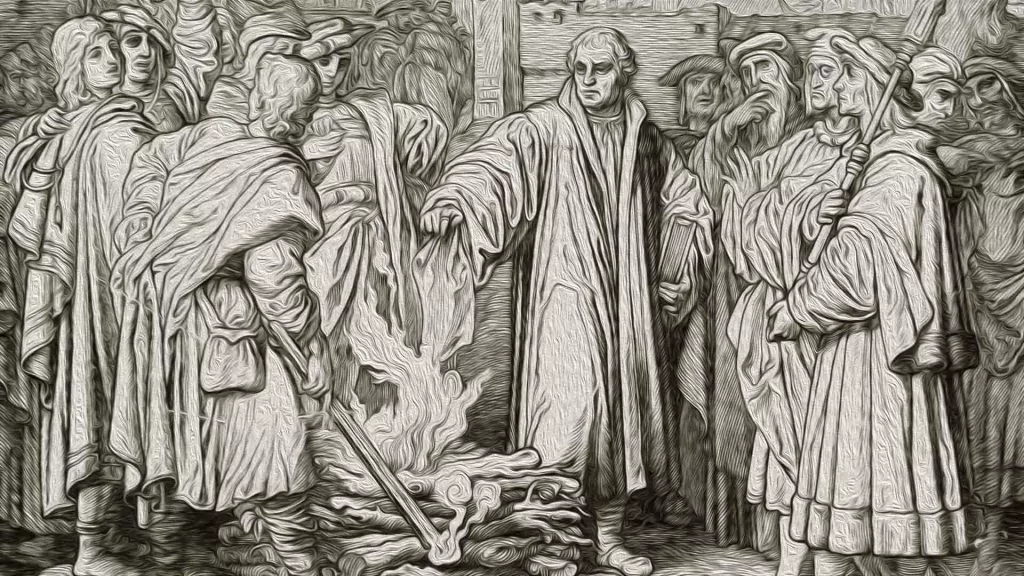
Science - Environment, Theology
Catastrophic global warming? A brief biblical case for skepticism
The media tells us that the question is settled, there is a 97% consensus, and that anyone who has questions is a “denier,” likened to those who are either so foolish, or malicious, as to deny the reality of the Holocaust.
But there are reasons to question. And while climate science might be beyond most of us, God has given us another means – a far more reliable means – of discerning truth, via His Word.
Gender: the Bible shows the way
Sometimes it doesn’t take much Bible study to be able to discern truth from error, and that’s certainly true in today’s gender debate. Young children are being surgically mutilated and hormonally sterilized and yet the government, doctors, psychologists, and media are applauding. While it might not be at 97% yet, the consensus is growing such that fines are being issued, teachers fired, students expelled, and Twitter mobs set loose on any who disagree.
Despite the pressure, few Christians are being fooled, though that might be due as much to the newness of the debate as it is that Evangelicals are turning to their Bibles for guidance. But if they do open His Word it won’t take a believer long to figure out God’s position. In Genesis 1:27 we learn it is God, not Man, who determines our gender:
“So God created Man in His own image; in the image of God He created him; male and female He created them.”
Population: following the Bible would have saved tens of millions
The overpopulation crisis has a longer history to it and, consequently, many more Christians have bought into it. Since the 1950s we’ve been hearing that sometime soon the world’s population will outstrip the planet’s resources. In his 1969 book The Population Bomb Paul Ehrlich warned:
“The battle to feed all of humanity is over. In the 1970s hundreds of millions of people will starve to death in spite of any crash programs embarked upon now. At this late date nothing can prevent a substantial increase in the world death rate.”
You would think that by now it would be easy to see that these overpopulation fears were mistaken. As economist Arthur Brooks has noted, what’s happened is the very opposite of Ehrlich’s dire prediction:
“From the 1970s until today the percentage of people living at starvation’s door has decreased by 80%. Two billion people have been pulled out of starvation-level poverty.”
Yet the overpopulation hysteria has never gone away. And the damage it has done has been on par with that of a Hitler or Stalin – tens of millions have been killed. Under threat of this crisis China implemented their infamous one-child policy, with its fines and forced abortions for couples who tried for two. And the deaths weren’t limited to China; overpopulation fears were used to justify the push for legalized abortion in countries around the world. Murdering your own children wasn’t cold and selfish anymore; now it was a woman doing her part to save the planet.
Christians opposed abortion, of course, but some believers started questioning whether overpopulation concerns might be correct. Maybe God’s call to “be fruitful and multiply” and fill the earth (Gen. 1:28) was just a temporary directive that we’ve fulfilled and should now treat as being over and done with.
But it takes only a little more digging to find out that’s not what God thinks. Overpopulation proponents saw children as more mouths to find – they saw them as a problem – but God speaks repeatedly of children as a blessing (Ps. 113:9, 127:3-5, Prov. 17:6, Matt. 18:10, John 16:21).
And opportunities present themselves when we see children as God sees them. When we understand they are a blessing, then we realize that not only do children come with a mouth that needs filling, but they also have hands that can produce even more than their mouth consumes. And they have a brain to invent and problem solve. When we see children this way – as a blessing and not a curse – then we'll realize there’s a real practical benefit in having lots of them: as we’ve been told, many hands make light work, and two heads are also better than one!
That’s why it shouldn’t have surprised Christians when in the 1950s and 60s a group of inventive sorts, led by American Norman Borlaug, helped develop much higher-yielding strains of cereal crops. This “Green Revolution” turned wheat-importing countries into wheat exporting countries by more than doubling yields. And while there are no prophecies in the Bible specifically mentioning Norman Borlaug, Christians could have seen him coming, and in a sense some did. Those who continued having large families, despite the dire predictions, could do so confident that any problems caused by the innumerable nature of their progeny would be solved by something like the Green Revolution happening.
Today, decades later, we can look back and see that a country like China, that ignored what God says about children, is facing a different sort of demographic crisis. A young Chinese couple will have two sets of parents and four sets of grandparents to look after and support, but have no siblings or cousins to help them. As soon as 2030 China will see their population start to decline, with not nearly enough working age citizens to provide for their aging population.
It’s not all that different in the Western world where, even without government coercion, our families have been shrinking and women are averaging far less than two children each. We aren’t as near the crisis point as China, but by aborting a quarter of the next generation, we’ve created our own coming demographic crisis.
Catastrophic global warming: a biblical case for skepticism
The population and gender debates remind us that the Bible is more reliable than any-sized consensus no matter how big. They also teach us that the world can get things not just completely wrong, but monstrously so, leading to the deaths of tens of millions. That’s why when it comes to global warming, where we’re being told once again that the fate of the planet is at stake, we want any and all guidance we can get from God’s Word.
Cornelius Van Til once noted:
“The Bible is thought of as authoritative on everything of which it speaks. Moreover, it speaks of everything. We do not mean that it speaks of football games, of atoms, etc., directly, but we do mean that it speaks of everything either directly or by implication.”
The Bible does speak to global warming, but not directly. This isn’t like the gender debate, which runs smack up against Genesis 1:27 (“male and female He created them”) or the overpopulation crisis, which directly opposes the very next verse (“be fruitful and multiply”). When it comes to global warming the Bible isn’t as direct.
But there are lots of implications. Time and space only allow me to present a half dozen texts. I’m not pretending that any one of them makes the definitive case for skepticism. But I do think that together they start pointing us decidedly in that direction.
"You will know them by their fruits" – Matt. 7:15-20
In Matthew 7 Jesus tells us that we can tell a good tree from a bad one by the fruit on it. His concern wasn’t with trees though, but with telling false prophets from good ones. When it comes to global warming the science is beyond most of us, but we can evaluate the people.
So let’s return to this 97% consensus we’ve heard so much about. This statistic is used to argue that there is no question but that the planet is headed to catastrophic climate change. But is this a reliable number, or is it like the greatly exaggerated 10% figure commonly given for the homosexual population?
The figure has a few different origins, but one of the more commonly cited is a paper by John Cook and his colleagues reviewing 11,944 published peer-reviewed papers from climate scientists. Did 97% of those papers’ authors agree with the statement “humans are causing global warming”? That’s what we would expect. But instead of 10,000+ papers with that position, there were 3,894, or approximately 33%. So how did the 97% figure come out of that then? Well, it turns out only approximately 34% of the papers took a position one way or the other, with just 1% disagreeing or uncertain, and 33% agreeing. Thus, of the 34% who took a position, 97% agreed that humans are causing global warming. Is it honest to ignore the two thirds who didn’t state a position, and say there is a 97% consensus and no room for a debate?
How this statistic has been used reminds me of a trick from another debate – equivocation about the definition of “evolution.” In his book, The Greatest Show on Earth, Richard Dawkins notes that when poachers shoot elephants with long tusks, the next generation is liable to have shorter tusks. Okay, but creationists also believe species can undergo changes over time. We’re the folks arguing that the array of cats we see today are all modified versions of a single cat kind brought on the ark. Dawkins has presented “minor changes over time” – a definition of evolution so broad that it enfolds even creationists into the evolution camp – as if it were proof of the from-goo-to-you sort of evolution that is actually under dispute.
Similarly, the 97% consensus is being presented as if all those counted hold that the warming is catastrophic, humans are the primary cause, and there is a need for immediate, drastic, global action. But the agreement was only that “humans are causing global warming.” And that’s a statement so broad as to enfold even many of the so-called “deniers.”
So on a statement we can verify – whether there really is a 97% consensus on catastrophic global warming – we find “bad fruit.” There are many other facts and claims we can’t evaluate, but doesn’t this tell us something about the “tree”?
“The one who states his case first seems right, until the other comes and examines him.” – Proverbs 18:17
God says that to find the truth good questions are helpful. That’s not going on here, where questioners are likened to Holocaust deniers. But here’s a few questions worth considering:
- Aren’t there bigger priorities than global warming, like the millions who will starve to death this year, or the billions who lack basic access to clean water and sanitation?
- If fossil fuels are harmful, and solar and wind problematic, why aren’t we turning to nuclear?
- How will the world’s poor be impacted by a move away from fossil fuels toward more expensive alternatives? Are we again (as we did in response to overpopulation fears) seeking to save the planet by harming those who live on it?
Samuel’s warning against kings – 1 Samuel 8:10-22
President Obama’s chief of staff famously said, “You never want a serious crisis to go to waste” and if you want to understand what he meant, looking no further than Justin Trudeau’s proposed ban on single-use plastics. This past year a video of a sea turtle with a plastic straw stuck up deep inside his nose went viral, alerting the tens of millions of viewers to the growing problem of plastics in our oceans. The movement to ban plastic straws has taken off since then.
But will Trudeau’s single-use plastics ban save turtles? No, because our straws don’t end up in the ocean. Of the mass of plastic in the ocean it’s been estimated the US is responsible for one percent, and it’d be reasonable to conclude that Canada is responsible for far less. So how, then, does all the plastic end up in the ocean? It turns out that the vast majority of it comes from poorer countries that don’t have proper trash disposal. They simply dump their waste into the ocean and into their rivers. Trudeau’s ban will do nothing to help the turtles…but it will expand the government’s reach.
The proposed solutions for climate change all involve expanding the government too, giving it a larger role in directing all things energy-related.
So, how is 1 Samuel 8 relevant? Here we find Samuel warning against an expansion of government – get a king and he’ll start intruding into all areas of your lives. If there is a biblical case to be made for limited, small government (and there is) then Christians have a reason to question crises that seem to necessitate an ever-expanding role for the State.
“…and it was very good.” – Gen. 1:31
While we no longer live in the perfect world Adam and Eve started with, we have only to wriggle our toes, or watch a ladybug crawl across the back of our hand to recognize that God’s brilliant design is still evident and at work all around us. We are on a blue and white marble, spinning at just the right angle, and orbiting at just the right distance from the sun, for it to rain and snow in season. We have a moon just the right size, and circling at just the right distance for us to study our own sun, and to bring the tides that sweep our beaches each day. And our planet is graced with a molten iron core that generates the very magnetic field we need to protect us from the solar winds, which would otherwise strip away the ozone layer that protects us from ultraviolet radiation. It is wheels within wheels within wheels, and while we can do damage to it, when we appreciate how brilliantly our world is designed we aren’t surprised there is a robustness to it.
Meanwhile, the unbeliever thinks our world is the result of one lucky circumstance after another – a tower of teacups, all balanced perfectly, but accidentally. If the world did come about by mere happenstance, then what an unbelievable run of happenstance we’ve had, and isn’t there every reason to fear change? Sure, the teacup tower is balanced now, but if we mess with it, how long can we count on our luck to hold?
“He who oppresses the poor taunts his Maker” – Prov. 14:31
At first glance, this text might not seem to provide much direction in this debate. After all, couldn’t a Christian who holds to catastrophic man-caused global warming cite it in support of their position too? Yes they could. If climate change is real, then the oppression it would bring on the poor would be a reason to fight it.
Yet this text does provide a very specific sort of direction. It lays out limits on what sort of global warming plans Christians should view as acceptable: any plan to save the planet that does so by hurting the poor is not biblical. That means increasing energy costs has to be out. Millions are starving already and raising energy prices will only increase those numbers.
“Be fruitful and multiply” – Gen. 1:28
Children come with an inevitable “carbon footprint” which is why some global warming proponents echo the same sentiments as the overpopulationists before them. “Save the earth; don’t give birth” is catchy, but if that was the only possible way we could lower carbon emissions then Christians could, on that basis, conclude there was no need to worry about CO2. Because God tells us children are a blessing, not a curse.
Of course there may be other ways to lower carbon emissions. But the more we hear people portraying children as a problem, the more we should recognize there is an element in the global warming movement intent on attacking God’s Truth, rather than taking on any real problem.
Conclusion
Other passages could be mentioned like Genesis 8:22, Romans 1:25 and Psalm 102:25-26 but this is good for a start. And that’s what this is: a start. My hope here is to encourage an exploration of what Scripture says that’s relevant to the issue of catastrophic global warming. The Bible isn’t silent on this topic; we need to look at global warming biblically.
This article first appeared in the July/August 2019 issue under the title "Global warming crisis? A brief biblical case for skepticism."













